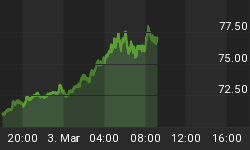The U.S. Dollar opened higher across the board following a sharp rally overnight against all major currencies. The rally in the Dollar started in Asia following a sell-off in the Japanese and Chinese stock markets. By the end of the day, however, many of the Forex markets were able to crawl back from their lows with the Euro actually posting a small gain.
Some analysts attributed the strength in the Dollar to the return of traders from summer vacation while others attribute the weakness to the possible "economic war" brewing between the U.S. and China.
Although the traditional end of summer vacation is Labor Day, last week featured light volume in the Forex market which was an indication that many traders were still on the sidelines. The thin trading conditions may have also allowed aggressive foreign currency traders to have their way with the Dollar.
Last week's huge sell-off in the Dollar was discounted by some who felt the light volume indicated the absence of a major buyer. Dollar bears basically had their way with the Dollar pushing a basket of currencies to a multi-month high. Today's action may have been an indication that last week's movement may have been overblown to the downside and that the Dollar may rally back to a more acceptable valuation.
Traders cite the confusion over the strength of the global economic recovery as a reason to buy the Dollar. Some feel that there is not enough evidence of a strong recovery in the world to be too pessimistic on the Dollar. Furthermore, excessive speculative demand for higher risk assets may be completely unwarranted until more solid evidence of a global recovery is presented in economic reports.
Another factor that contributed to the early weakness in global equity markets and the subsequent rally in the Dollar was the possible "economic war" developing between China and the U.S. Late last week, President Obama surprised Chinese officials by raising taxes on the import of Chinese manufactured auto tires. China reacted by calling this move protectionism. This reaction has made traders nervous about holding higher risk assets on the thought that China would implement economic sanctions of its own to combat the move by the U.S. An aggressive move by the Chinese at this time could curtail economic gains in both countries that would slow down the recovery process.
The initial reaction to the developing rift between the U.S. and China was to buy the Dollar. By the end of the day, however, many traders felt the reaction was exaggerated and sold the Dollar. Given the reliance of each country on each other for economic prosperity, it is highly unlikely that this disagreement between the two nations will amount to anything more than a war of words.
In addition to this weekend's global events, traders will have a chance to react to tomorrow's U.S. economic events. On Tuesday the Producer Price Index, Retail Sales and Business Inventories Reports could be market movers. Traders are expecting slightly better numbers in Retail Sales and Business Inventories as improvements in the economy are expected to boost the confidence of consumers and businesses and encourage more spending. Improvements in the U.S. economy are likely to trigger another break in the Dollar as trader demand for risky assets would likely increase.
Today, the Euro was able to recover from early weakness after U.S. equity markets took back their overnight losses to post a small gain on the day.
The GBP USD closed lower following a report from Ernst & Young LLC's Item Club which indicated that the U.K. housing crisis could worsen next year because of a squeeze on the mortgage market.
Weaker crude oil prices contributed to a sell-off in the Canadian Dollar. The longer-term picture indicates that the USD CAD is range bound. Short-term the USD CAD could rally if energy prices continue to break.
Technical buyers helped support the USD JPY after several days of weakness. Investors had been buying Japanese Yen now that the U.S. Dollar has become the global refunding currency. The Dollar has the potential to rally for 2 to 3 days because of grossly oversold conditions.
The NZD USD and AUD USD were able to gain back some of their earlier losses when U.S. equity markets rallied late in the trading session. Both of these markets are vulnerable to sharp breaks should global demand for higher risk assets drop.
















